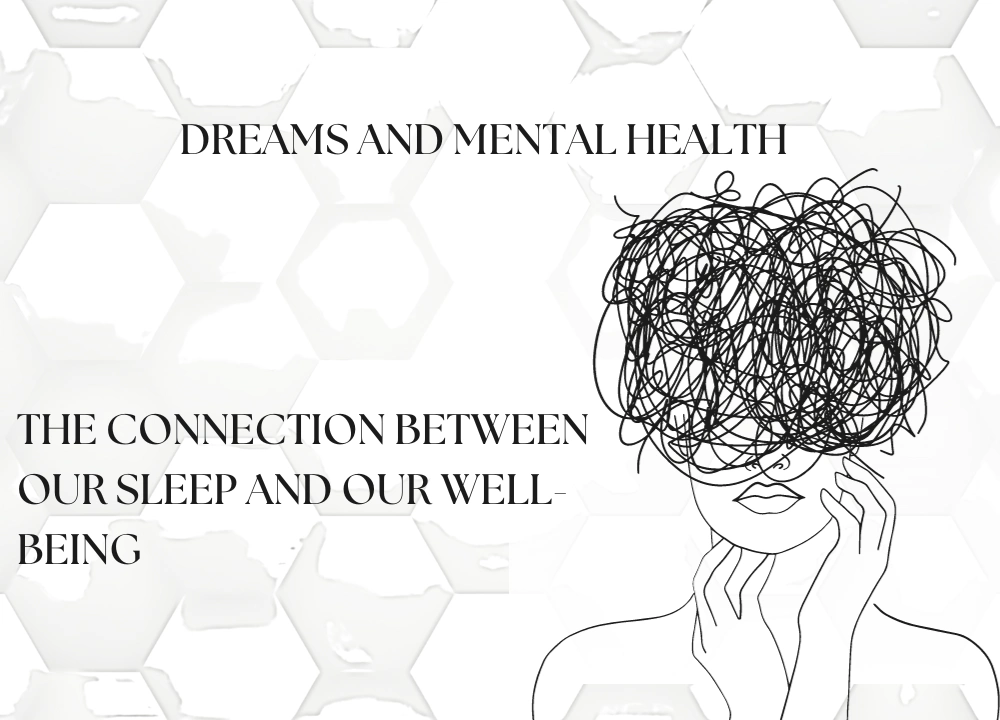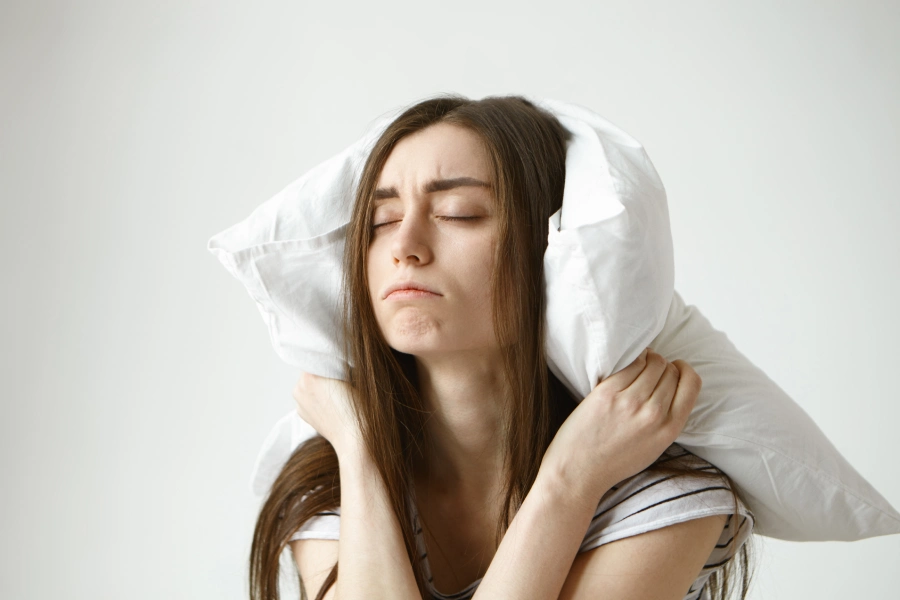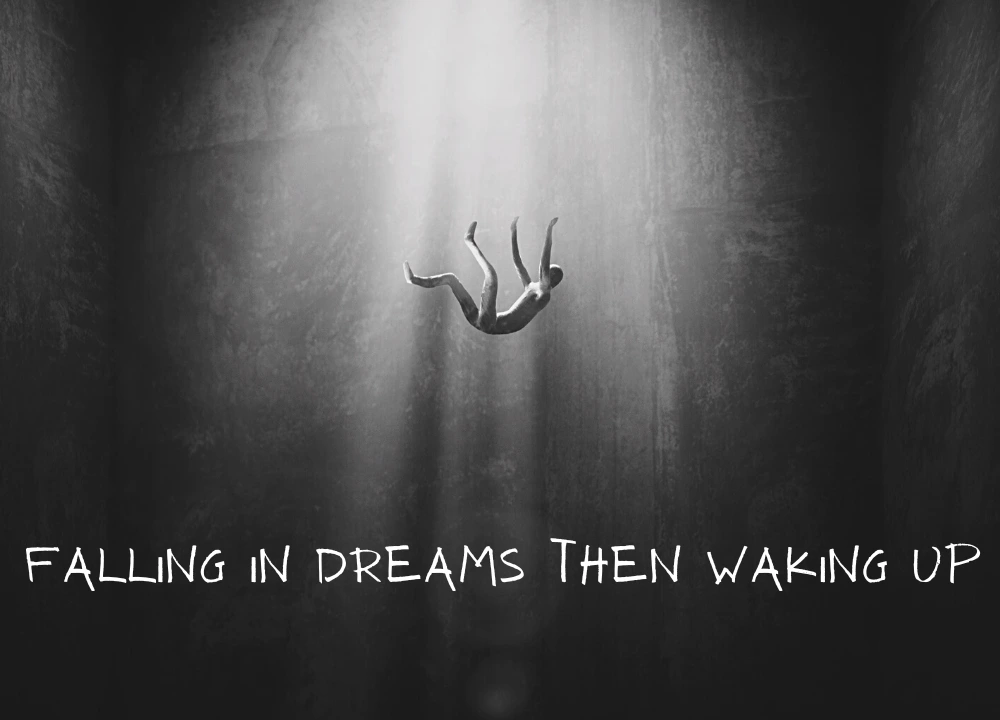Dreams and Mental Health – The Connection Between Our Sleep and Our Well-being

Dreams and mental health are connected as the quality of dreams significantly impacts our mental health and overall well-being. Sleep is an essential component of mental health, and dreams are an essential aspect of the sleep experience. Dreams, which occur mainly during the rapid eye movement (REM) sleep period, help with cognitive processing, emotional management, and problem-solving. Research has shown that sleep quality influences well-being, anxiety, sadness, and post-traumatic stress disorder (PTSD) which are just a few of the mental health illnesses that have been linked to sleep disorders. In this article, we will discuss how dreams affect mental health and the relationship between sleep and overall well-being.
What are Dreams?
Dreams are a sequence of events and are characterized by a string of internal thoughts, feelings, sensations, and images. They can have various kinds of scenarios and situations – familiar or unfamiliar, favorable or unfavorable, and positive or negative. Dreams can include unfamiliar places, people, situations, or activities. People tend to find the logic behind dreams, but dreams are events with some “Dream signs or symbols” that should be studied well to decode a dream. For example – killing someone in a dream doesn’t mean that you want to kill someone or there is some kind of accident going to happen in your life. It simply means you want to cut off a negative personality trait. If you are climbing a mountain, that means that you are closer to achieving something big in real life.
Every dream symbol has a different meaning, and studying these symbols can help you to decode these dreams and get benefit from them. There are real and vivid dreams, but sometimes dreams can also be disjointed, illogical, or absurd. They give no meaning to anything and can be ignored. Stressing over an illogical dream gives no benefit but can harm your daily lifestyle and psychological and emotional well-being. Dreams provide a platform to experiment with your ideas and analyze their effects before actually applying them in real life. The power of the subconscious mind opens a doorway to creativity, innovation, and great ideas that can boost a person’s mental health and develop a positive mindset.
Dreams and Mental Health
Dreams can provide an insight into the mental and emotional state of our mind and can reflect our fears, anxiety, problems, etc. Learn how dreams are connected to mental health and influence it.
Emotional Processing
Emotional processing is a phenomenon that allows people to understand and regulate their emotions. Dreams are a platform to examine and resolve unresolved feelings, and emotions which can improve mental health by lowering psychological distress.
Unconscious Thoughts and Desires
Dreams are connected to our subconscious mind, which has all the insights into our hidden desires and thoughts. Dreams are a medium to know about these unconscious thoughts and desires, which help us to know about our personality and hidden traits. By understanding these desires, we can walk on the path of self-discovery and contribute to mental health and self-awareness.
Trauma Processing
Dreams are highly significant for people who have been in some kind of trauma due to some past experience. Trauma-related nightmares can be problematic and persistent, worsening the symptoms of post-traumatic stress disorder (PTSD). Dreams are a great way to process and overcome traumatic experiences, which can ultimately help the healing process along with therapy or other interventions.
Sleep and Mental Health
Sleep quality, especially REM sleep, is interlinked with good mental health. Proper sleep leads to better mental health, whereas sleep disturbances can harm mental well-being. This negative effect causes sleep disorders like insomnia, high stress, Anxiety, and depression. Dreams aid in providing peaceful and quality sleep.
Lucid Dreaming and Creativity
A lucid dream is a phenomenon where a person becomes aware that he is in a dream and has the power to control it. Lucid dreaming opens a path for numerous opportunities that enhance creativity, self-development, and personal growth. Unique thoughts and exceptional ideas are the gifts of lucid dreams that enhance creativity in real life. Creativity and Positive lifestyle aid in improving mental health and overall well-being.
Fulfilling Desires
Humans have a lot of desires, and dreams are an easy way to fulfill them. They help us to escape from reality for a short time and enter the world of imagination where all our desires can be fulfilled. Fulfillment of such desires in dreams boosts mood and provides a feeling of satisfaction and happiness.
Dream Content
The content of our dreams also affects our mental health. Positive dreams can uplift mood and overall well-being, whereas nightmares can lead to trauma, anxiety, and other mental health conditions. They can negatively affect mental health if they become frequent. People having depression tend to dream more as they have long REM sleep, the stage which is associated with dreaming. Anxiety is another mental condition that is linked to bad dreams and disturbed sleep schedules. Such people suffer from nightmares that disturb their mental and emotional well-being.
Dream Therapy
Many therapy methods use dreams as a resource for learning and improving mental health. To treat psychological issues like depression and promote emotional well-being, procedures including dream analysis, dream journaling, and imagery rehearsal therapy can be helpful. Dream symbols and signs are used to understand the person’s psychological state of mind and their problems.
How do Dreams Affect Sleep?
Dreams are a part of the sleep cycle that happens during the rapid eye movement (REM) stage of sleep. Sleep is that state of mind when the mind and body rest, but the subconscious mind keeps functioning. Dreams are a creation of this subconscious mind that helps you to connect to a different world – the world of imagination, creativity, experiences, and power. They are a sequence of images, situations, emotions, and ideas that happen during sleep. Such positive aspects of a dream do not have much effect on sleep but influence peaceful sleep and a positive morning mood filled with new ideas and outlook.
Then there is another type of dreams which are called “Nightmares.” Nightmares are those negative dreams that occur during the 4th phase of sleep (REM). They are intense, disturbing, and filled with feelings of fear and terror. They are not similar to regular dreams and can highly impact a person’s mental well-being. Such dreams can have a wide range of themes, including being chased on by someone, going through a life-threatening situation, coming across monsters, or being stuck in a strange place. A person may wake up unexpectedly during a nightmare, with a scared feeling, or have a faster heartbeat. The dreamer might remember the nightmare well and have difficulty falling asleep again or feel frightened about it. This disturbed sleep cycle causes chronic sleep problems like insomnia, which leads to destructive mental and physical health.
Stages of Sleep
Sleep consists of 4 major stages, of which the first three are associated with non-rapid eye movement (NREM) sleep, and the 4th one is with rapid eye movement (REM) sleep. Take a look at all the 4 stages.
NREM Stage 1
It is the transition stage between wakefulness and sleep. It is a light sleep where you may wake up in between. In this stage, our brain produces theta waves. The brain activity slows down, and the body relaxes. It lasts for around 8 to 10 minutes.
NREM Stage 2
In this stage, the brain activity continues to slow down, and your heart rate and body temperature also decrease. Eye movement also stops during this stage, resulting in losing consciousness about the surroundings. This stage lasts for 15-20 minutes.
NREM Stage 3
Stage 3 is characterized by the emergence of slow brain waves known as delta waves. It is the most restorative and deepest phase of sleep. External stimuli cannot wake up a person from this stage of sleep. Muscles become completely relaxed, and breathing slows down. The body strengthens the immune system, regenerates tissues, and aids in physical recovery during this phase. It lasts for around 30-40 minutes.
REM stage 4
The REM (Rapid eye movement) stage is linked with the dreaming phase, where the brain activity increases, but the body remains relaxed. This stage causes faster breathing, and the eye movement restarts. REM sleep is important for cognitive functions like creativity, problem-solving, self-awareness, etc., through dreaming. This stage begins after at least 90 minutes of proper sleep. Lucid dreaming is possible during this time as the brain is alert and can work and control dreams.
Importance of Proper Sleep for better Well Being
Positive dreams promote peaceful sleep, and a minimum of 8 hours of peaceful sleep is vital for our well-being. Sleep and mental health are linked as good sleep promotes brain activity, stimulates mood, reduces stress and promotes better health.
- Our body goes through the restorative process during sleep, which means the damaged tissues and cells get repaired. This recovers the body from daily wear and tear, which promotes well-being.
- Sleep is essential for proper brain functioning. It strengthens memories and enhances creativity, learning, and problem-solving skills, ultimately increasing focus and productivity. It helps in better decision-making, cognitive performance, and overall mental health.
- Less sleep can cause mood swings and frustration, which leads to high stress, anxiety, and depression in the later stage. It is observed that people who sleep less are highly prone to depression. A friendly outlook and emotional stability are encouraged by getting enough sleep.
- Proper sleep plays a vital role in strengthening the immune system and fighting against illness, infection, and diseases. During sleep, our body produces cytokines and releases them to fight infection and illness. Lack of sleep weakens the immune system causing frequent illness for a prolonged period.
- Insufficient sleep is the root cause of chronic diseases like obesity, diabetes, etc. Proper sleep reduces the chance of such long-term diseases and promotes well-being.
- Sleep is essential for better performance and refreshment. It improves muscle regeneration, coordination, response time, and overall sports performance. Adequate sleep allows the body to recover and improve physical performance and gives a better result.
- Less sleep increases the chances of heart disease due to increased blood pressure. A study proved that people who sleep less than 7 hours have 61% more risk of high blood pressure.
Conclusion
Dreams and mental health are linked to each other in a way that positive dreams promote better emotional stability and reduce mental health problems. In contrast, nightmares cause sleep disorders and mental health problems like anxiety and depression. Favorable dreams open the route for creativity and problem-solving, which leads to a better lifestyle and well-being. On the other hand, sleep plays a crucial role in promoting well-being. Quality sleep provides health benefits like strengthening the immune system, reducing the chances of heart attack and chronic diseases, etc. Dream therapy is a unique way to cure problems like depression and promotes emotional well-being by decoding dream symbols and using them to understand one’s emotions. Prioritize good sleep habits, seek the proper treatment for sleep problems, and take action to enhance your mental well-being by understanding and addressing the connection between sleep, dreams, and mental health.










